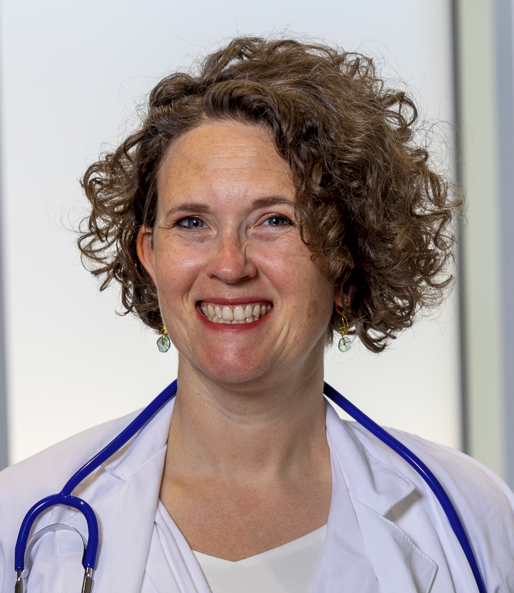
AAMC Learning Series: Improving Maternal Mental Health Outcomes: Varied Approaches to Closing the Gap of Care
-
Register
- User - Free!
Understanding the challenges and opportunities for improving maternal mental health is an integral part of AAMC’s Action Plan 7: Improve Access to Health Care for All. Perinatal mood disorders such as postpartum anxiety and depression affect millions of birthing people every year yet are commonly underdiagnosed and left untreated. Accessing perinatal mental health services is a significant barrier for many due to a lack of providers, high cost of treatment, stigma, and much more. Integrating psychiatric care with primary care and supplementing clinical care with software-based therapy tools are just a few of the ways to improve outcomes. There are also many academic medical centers and nonprofit organizations working to fill the gaps of care that birthing people need at such a critical time. This webinar series will highlight the innovative work being done, as well as provide key takeaways for a wide variety of attendees.
Register for all sessions in this series by clicking the green register button above. Please note that you can participate in multiple forums or choose individual sessions to attend. Registration is open to all.
-
Contains 2 Component(s) Recorded On: 09/11/2023
Postpartum Support International (PSI) is one of the foremost organizations working to bring awareness and help to those mothers in need through resources, hotlines, and much more. PSI in coordination with HRSA launched a National Maternal Mental Health Hotline last year, which provides 24/7 free and confidential support throughout the entire perinatal period. In addition to this hotline, the US Department of Health & Human Services introduced the 988 Suicide and Crisis Lifeline, demonstrating that mental health is a national priority. This webinar will amplify the work PSI is doing, bring awareness about the different hotlines, and discuss how to help after women call a hotline.
This is part of the AAMC Maternal Mental Health Learning Series.
Postpartum suicide is the leading cause of maternal death in the first year following childbirth. Perinatal mood disorders such as anxiety and depression also affect millions of birthing people each year. In both instances, women of color are disproportionately affected and have increased suicidal ideation than white women, as well as more instances of anxiety, depression, and substance use disorders. To combat these mental health issues, there are many organizations and resources out there to help in times of crisis.
Postpartum Support International (PSI) is one of the foremost organizations working to bring awareness and help to those mothers in need through resources, hotlines, and much more. PSI in coordination with HRSA launched a National Maternal Mental Health Hotline last year, which provides 24/7 free and confidential support throughout the entire perinatal period. In addition to this hotline, the US Department of Health & Human Services introduced the 988 Suicide and Crisis Lifeline, demonstrating that mental health is a national priority. This webinar will amplify the work PSI is doing, bring awareness about the different hotlines, and discuss how to help after women call a hotline.
Register for other sessions in the series as they become available here. Please note that you may participate in multiple forums or choose individual sessions to attend.

Wendy Davis, PhD, PMH-C
Executive Director, Postpartum Support International
Wendy Davis PhD, PMH-C, is the Executive Director of Postpartum Support International (PSI), the world’s largest organization focused on perinatal mental health. Dr. Davis provides leadership and strategic direction to the network of PSI chapters and experts to advance the mission, vision and purpose of PSI. She leads PSI’s delivery of vital perinatal mental health information, education, support, and services to pregnant and postpartum women, fathers and partners, and families. Wendy began her career as a psychotherapist, and became a specialist in perinatal mental health after recovering from postpartum depression and anxiety.
Wendy works with health care systems, sectors and government agencies, and serves on national advisory boards providing expertise on policy and practice for perinatal mood and anxiety disorders. Dr. Davis and PSI partner with advocacy and professional organizations to advance policy, training, and services. Dr. Davis leads the PSI Mind the Gap National Initiative with a coalition of stakeholders to ensure Perinatal Mental Health is a national priority.

Chris Raines, MSN, RN, APRN-BC, PMH-C
Board Chair Emeritus, Postpartum Support International
Christena Raines, RN, MSN, APRN-BC, PMH-C, is an adjunct professor in the department of psychiatry at UNC Chapel Hill. She is a dual trained nurse practitioner in women’s health care and board-certified psychiatric nurse practitioner. At UNC she helped develop an intergraded perinatal mental health model within the OB-GYN High-risk clinics and founded the UNC Perinatal Depression Support group. She was a member of the planning team instrumental in opening the 1st in-patient Perinatal Psychiatric program in the US. She is considered a subject matter expert (SME) and currently serves as the board chair emeritus for Postpartum Support International.
-
Contains 2 Component(s) Recorded On: 10/12/2023
This webinar will focus on the successes, challenges such as barriers to care, and opportunities, as well as how the state-funded access programs began.
This is part of the AAMC Maternal Mental Health Learning Series.
Perinatal mood and anxiety disorders are commonly underdiagnosed and undertreated. Primary care, obstetric, and other perinatal care professionals often have questions on how to evaluate, initiate, and follow-up on treatment for perinatal mental health and substance use disorders. State-funded perinatal psychiatry access programs like MCPAP for Moms, Project TEACH NY, and NC Maternal Mental Health MATTERS are three programs affiliated and supported by academic medical centers that are staffed weekdays from 9a-5p by perinatal psychiatrists who offer training, consultation, resources, and referrals to build the capacity of perinatal care professionals to screen, assess, and treat perinatal mental health and substance use disorders. The three programs serve different patient populations and have structural and funding differences. This webinar will focus on the successes, challenges such as barriers to care, and opportunities, as well as how the state-funded access programs began. A key takeaway from this webinar will be for providers to understand how these programs can help them in their practice. Data and outcomes metrics for these programs will also be discussed, including approaches to understanding provider utilization.
Register for other sessions in the series as they become available here. Please note that you may participate in multiple forums or choose individual sessions to attend.

Nancy Byatt, DO, MS, MBA, DFAPA, FACLP
Executive Director, Lifeline for Families Center and Lifeline for Moms Program
Professor of of Psychiatry, Obstetrics & Gynecology, and Population & Quantitative Health Sciences Medical Director of Research and Evaluation, MCPAP for MomsNancy Byatt, DO, MS, MBA, DFAPA, FACLP, is a Tenured Professor at UMass Chan Medical School, perinatal psychiatrist, and physician-scientist focused on improving systems of care to promote the mental health of parents and children. She developed the Massachusetts Child Psychiatry Access Program (MCPAP) for Moms MAP for Moms , now a national model for perinatal mental health care. She is the Founding Executive Director of the Lifeline for Families Center and Lifeline for Moms Program at UMass Chan Medical School. Her research uses implementation science methods to design, implement, and evaluate scalable approaches for improving parental and child mental health services and outcomes. With over ten years of federal funding, her research had led to over 90 peer-reviewed publications and book chapters.

Kristina Deligiannidis, MD
Director, Women’s Behavioral Health, Zucker Hillside Hospital, Northwell Health
Medical Director, Reproductive Psychiatry, Project TEACH NY
Professor of Psychiatry, Molecular Medicine and Obstetrics & Gynecology, Donald and Barbara Zucker School of Medicine at Hofstra/Northwell
Professor, Feinstein Institutes for Medical Research, Northwell Health Adjunct Professor of Psychiatry, UMass Chan Medical SchoolDr. Kristina Deligiannidis is the Director of Women’s Behavioral Health at Zucker Hillside Hospital, Northwell Health and a Professor of Psychiatry, Molecular Medicine and Obstetrics and Gynecology at the Donald and Barbara Zucker School of Medicine at Hofstra/Northwell. As Director, she leads a clinical/translational research program and advises on policies and services promoting women’s behavioral health at Northwell Health, the largest health system in NY state. Dr. Deligiannidis additionally serves as the Medical Director for Reproductive Psychiatry for the perinatal psychiatry access program, Project TEACH, funded by the NY State Office of Mental Health. For Project TEACH, Dr. Deligiannidis leads a team of 16 reproductive psychiatrists/psychologists to provide education and phone consultation to maternal health clinicians on perinatal mood and anxiety disorders, across all 62 counties of NY. As a reproductive psychiatrist, she has expertise in treating women with mood and anxiety disorders linked to the menstrual cycle, perinatal and perimenopausal periods.
Dr. Deligiannidis is a nationally recognized leader in the field of perinatal depression and in novel therapeutics research. Her research program includes a focus in psychoneuroendocrinology, particularly neurosteroids and hormones, and multimodal neuroimaging in women’s behavioral health. Dr. Deligiannidis’s research is supported by NIH, foundation and industry funding, including prestigious K23 and R01 grants. Her efforts have been nationally recognized with many awards for research and medical student and resident teaching. Her recent publications have been in high impact journals including the Lancet, Lancet Psychiatry, JAMA Psychiatry, Am. J. of Psychiatry, Neuropsychopharmacology and Psychoneuroendocrinology. Her research has been covered by major media outlets, including CNN, the Associated Press, NPR, the Boston Globe, Boston and New York ABC and CBS News, Time Magazine, Good Morning America and others.
Dr. Deligiannidis actively contributes to national scientific committees and gives scientific presentations nationally and internationally. She is a past Council member of the Society of Biological Psychiatry, a past Board member for the American Society of Clinical Psychopharmacology and currently is a full member of the American College of Neuropsychopharmacology where she serves on several committees. Dr. Deligiannidis also serves as a reviewer on over 20 scientific journals and on Editorial Boards of national and international journals. She serves as a federal grant reviewer for the Center for Scientific Review at NIH. Locally she serves on steering committees in both the Departments of Obstetrics & Gynecology and Psychiatry at Long Island Jewish Medical Center and Zucker Hillside Hospital and at the Katz Institute for Women’s Health on Long Island. She additionally serves on Faculty Council and the Zucker Women in Medicine and Science (ZWIMS) Gender and Equity committee at the Zucker School of Medicine at Hofstra/Northwell.
Dr. Deligiannidis received her medical degree from and completed her psychiatry residency and chief residency in psychopharmacology research at the University of Massachusetts Medical School. Prior to and during medical school she trained in neuroscience research at the National Institutes of Health. After residency she completed additional research training in behavioral endocrinology and experimental therapeutics at the NIH and in neuroimaging at the Martinos Center for Biomedical Imaging at MGH.

Mary Kimmel, MD
Assistant Professor, University of North Carolina at Chapel Hill
Director, Perinatal Psychiatry Program
Medical Director, NC Maternal Mental Health MATTERS ProgramMary Kimmel, MD is an Assistant Professor in the tenure track in the Department of Psychiatry at the University of North Carolina at Chapel Hill (UNC). In her first five years at UNC, she served as Medical Director for the UNC Perinatal Psychiatric Inpatient Unit, a national referral center for treatment-resistant perinatal mood and anxiety disorders and postpartum psychosis. Dr. Kimmel in partnership with North Carolina Department of Health and Human Services, obtained United States Health Resources & Services Administration (HRSA) funding and developed the NC Maternal Mental Health MATTERS program, a statewide consultation program providing support to any provider screening, assessing and treating mental health needs of pregnant, postpartum or early parenting individual; continuing to serve as NC MATTERS Medical Director. Her research is focused on improving screening and assessment in order to improve personalization of treatment through the blending of patient’s history, self-reported symptoms, and biomarkers. Her biomarker work strives to better understand the role of the microbiome, immune system, and stress on the current and future mental health of the parent-child dyad.
-
Contains 2 Component(s) Recorded On: 11/14/2023
Developed by an interdisciplinary team of Black patients, obstetric clinicians, and mental health professionals, EleVATE Group Care aims to reduce preterm birth rates among Black women by incorporating evidence-based behavioral techniques. This webinar will showcase the success of the program, their plans for the future, and the challenges they have faced along the way.
This is part of the AAMC Maternal Mental Health Learning Series.
Developed by an interdisciplinary team of Black patients, obstetric clinicians, and mental health professionals, EleVATE Group Care aims to reduce preterm birth rates among Black women by incorporating evidence-based behavioral techniques. Additionally, its framework for health equity promotion involves three main components: Patients – reduce inequitable adverse pregnancy outcomes, Systems Change – elevate and integrate perspectives from communities and health care institutions, Clinicians – provide training to support patients experiencing trauma, depression, and psychosocial stress because of racism. Through this work at seven sites across Missouri (and growing), EleVATE has already shown a significant improvement in health outcomes. This webinar will showcase the success of the program, their plans for the future, and the challenges they have faced along the way.
Register for other sessions in the series as they become available here. Please note that you may participate in multiple forums or choose individual sessions to attend.

Ebony Carter, MD, MPH
Director, Division of Maternal-Fetal Medicine
University of North Carolina School of MedicineDr. Carter is known for her research involving community-based interventions to promote health equity for pregnant women and their babies. She is the director of the Division of Clinical Research in the Department of Obstetrics & Gynecology at Washington University School of Medicine. Her research focuses on evidence-based methods to optimize management of medical complications in pregnancy and translating knowledge of adverse pregnancy outcomes into risk-reduction strategies for future cardiovascular disease.

Traci Johnson, MD
Assistant Professor, Assistant Program Director, Departments of Obstetrics and Gynecology
University of Missouri-Kansas City School of MedicineDr. Traci Johnson was born and raised in rural Texas, and her skill as a left-fielder earned her a softball scholarship to Prairie View A&M University outside of Houston.
She attended MCP Hahnemann College of Medicine in Philadelphia, now Drexel University College of Medicine, due to its rich history of paving the way for women in medicine and women of color. She entered residency at the vigorous Washington University in St. Louis, where she was honored to serve as Administrative Chief Resident.
After repaying her service as a National Health Service Corps Scholar at a rural Federally-Qualified Health Center, she slowly migrated to the private practice sector of Kansas City but felt the pull of academics where she feels most impactful.
At University Health, she oversaw a busy Labor and Delivery Unit as the Director for L&D while serving as Associate Program Director for the OBGYN residency program. Her passion, however, is her work in population health equity and special communities. She serves as a leader in Missouri’s Hospital Association's Perinatal Quality Review Board, overseeing efforts to decrease maternal and infant mortality in the state. She also was appointed as a member of the Pregnancy-Associated Mortality Review Board in Jeff City, reviewing all pregnancy-related deaths in Missouri. She was recently elected Chair-Elect of this prestigious board and will focus the next two years on health equity.
She recently completed a life-long dream of subspecialty training in Maternal-Fetal Medicine at the University of Missouri-Kansas City and will return to academics this summer.
When she is not doing all this, you will see her and her husband cheering their two sons and daughter emphatically at soccer or gymnastics.

Kelly McKay-Gist, MSW, LMSW
Assistant Director of Perinatal Health Equity
St. Louis Integrated Health NetworkKelly McKay-Gist is the Assistant Director -Perinatal Health Equity at the St. Louis Integrated Health Network. Primarily, she works coordinating the EleVATE Collaborative: Elevating Voices, Addressing Depression, Toxic Stress and Equity. Her work focuses on community based participatory research, implementation, catalyzing racial equity to eliminate inequitable patient outcomes, systems and policies. Previously, she has held a range of direct service leadership positions focused on implementing mental health interventions and managing community led projects focused on mental health treatment for children, adults, and young families.
She earned her undergraduate degree in human development and family studies from University of Vermont and Master of Social Work from Washington University in St. Louis. She is also a licensed clinical social worker.

Cheron Phillips
Founder
For Parent. For Baby. For Life.
A CHW, Founder of a maternal advocacy group, For Parent. For Baby. For Life., that brings awareness to postpartum care, self-care, and systems change in the region. She is also a Patient-turned-Partner with the EleVATE Collaborative through the St. Louis Integrated Network since its inception in 2016, shortly after the birth of her first son who has been diagnosed with Autism. As a group prenatal care participant during her pregnancy, she utilized her lived expertise to co-create the EleVATE curriculum with a transdisciplinary team of patients, healthcare professionals, and community organizations. She serves on the EleVATE Steering Committee, which guides the overall mission of the Collaborative, provides trauma-informed care training to obstetric clinicians in St. Louis, and speaks nationally on her work to make the medical field more equitable for her community.
-
Contains 2 Component(s) Recorded On: 12/05/2023
This webinar will feature speakers from the Maternal Mental Health Leadership Alliance (MMHLA), which is a leading organization in the advocacy of maternal mental health and is dedicated to promoting the mental health of mothers and childbearing people across the country.
This is part of the AAMC Maternal Mental Health Learning Series.
Screening for anxiety, depression, and other mental health disorders before, during, and after pregnancy is essential to the overall health and wellbeing of the birthing person and by extension their child and family. While it is recommended, or in some states required, that providers screen for mental health issues over the course of a birthing person’s pregnancy, there is no current standard for how or when to screen. Patient and provider education on maternal mental health issues are also lacking, with many providers unsure of how to treat a birthing person for one of these conditions. Early detection and prevention are key, which translates to better outcomes for all. This webinar will feature speakers from the Maternal Mental Health Leadership Alliance (MMHLA), which is a leading organization in the advocacy of maternal mental health and is dedicated to promoting the mental health of mothers and childbearing people across the country. MMHLA, in partnership with the March of Dimes, established the Perinatal Mental Health Education and Screening Project. This is a multi-year, multi-disciplinary collaborative effort to ensure all patients across the perinatal spectrum are educated and screened for maternal mental health disorders. The speakers will discuss the screening project phases, what they have learned, and the next steps in achieving better equity and care for patients.
Register for other sessions in the series as they become available here. Please note that you may participate in multiple forums or choose individual sessions to attend.

Adrienne Marks Griffen, MPP
Executive Director
Maternal Mental Health Leadership Alliance
Adrienne Griffen, MPP, is the Executive Director of Maternal Mental Health Leadership Alliance (mmhla.org), a nonpartisan nonprofit organization dedicated to promoting the mental health of mothers and childbearing people in the United States with a focus on national policy and health equity.
MMHLA advocates for improved maternal mental health care and serves as a clearinghouse of information related to maternal mental health. MMHLA's advocacy efforts have led to almost $200 million in federal funding for maternal mental health programs at the national and state levels.
Adrienne serves on the Boards of Directors of the Marce Society of North America and the Mental Health Liaison Group. She also founded Postpartum Support Virginia (postpartumva.org), which she led for ten years (2009-2019), building a statewide network of support groups and maternal mental health coalitions which have helped thousands of new mothers.
Adrienne graduated from the US Naval Academy and has a Masters in Public Policy from Harvard’s Kennedy School of Government. She lives in Arlington VA with her husband and three young adult children.
-
Contains 2 Component(s) Recorded On: 01/25/2024
For this webinar, the speakers will discuss the new ACOG clinical practice guidelines published in June – Screening and Diagnosis of Mental Health Conditions During Pregnancy and Postpartum and Treatment and Management of Mental Health Conditions During Pregnancy and Postpartum as well as other ACOG resources for providers, patients, and families. The clinical practice guidelines offer a roadmap for providers to take the necessary steps of screening, diagnosing, treating, and managing mental health conditions.
This is part of the AAMC Maternal Mental Health Learning Series.
Screening for perinatal mood disorders is critically important and often the first step towards having a conversation about proper treatment with a health care provider. Depression and anxiety in the perinatal period effect on average 1 in 5 birthing persons with rates more than doubled for birthing persons of color. For this webinar, the speakers will discuss the new ACOG clinical practice guidelines published in June – Screening and Diagnosis of Mental Health Conditions During Pregnancy and Postpartum and Treatment and Management of Mental Health Conditions During Pregnancy and Postpartum as well as other ACOG resources for providers, patients, and families. The clinical practice guidelines offer a roadmap for providers to take the necessary steps of screening, diagnosing, treating, and managing mental health conditions. The speakers will discuss how they have interpreted and implemented the guidelines in their own practice and how other providers can utilize them to help their patients.
Register for other sessions in the series as they become available here. Please note that you may participate in multiple forums or choose individual sessions to attend.

Tiffany Moore Simas, MD, MPH, MEd, FACOG
Chair, Department of Obstetrics & Gynecology at University of Massachusetts Memorial Health
Medical Director of Lifeline for Moms
American College of Obstetrics and GynecologyDr. Moore Simas is the Donna M. and Robert J. Manning Chair of the Department of Obstetrics & Gynecology, and Professor of Ob/Gyn, Pediatrics, Psychiatry and Population & Quantitative Health Sciences at UMass Chan Medical School/UMassMemorial Health.
Dr. Moore Simas is an academic specialist in general Ob/Gyn, physician-scientist, educator, advocate, and leader. She is the founding Obstetric Engagement Liaison of the Massachusetts Child Psychiatry Access Program (MCPAP) for Moms, a first in nation state-wide program that enhances the capacity of obstetric care clinicians to address perinatal mental health and substance use disorders.
MCPAP for Moms has impacted national policy resulting in 22 additional states having similar programs, with current legislation poised to sustain existing programs and to support the development of others. It is anticipated that by the end of 2023, there will be 30 state-based programs in addition to the two national Access Programs via Postpartum Support International and the Veteran’s Administration.
Dr. Moore Simas is obstetric director of Lifeline for Moms, a program founded to provide technical assistance for others developing Perinatal Psychiatry Access Programs, like MCPAP for Moms, and as a research home to further advance innovations in integrating obstetric and mental health care. She is MPI of the Lifeline for Moms National Network of Access Programs, designed to facilitate peer-learning and sharing of resources with partners and collaborators, across the U.S., and to facilitate quality improvement and program evaluation within and across Access Programs. The Lifeline for Moms team and their collaborators have developed perinatal mental health toolkits, e-modules, and implementation guides that are now available through the American College of Ob/Gyn’s (ACOG) website.
Dr. Moore Simas has a long-standing federally funded research portfolio through CDC, NIH, PCORI, ACOG, Perigee and other foundations, and is an author on over 150 peer-reviewed publications. She partners with and advises professional, advocacy, and governmental organizations to advance the equitable care of all pregnant and postpartum individuals. She serves her profession nationally as the Society of Academic Specialists in General Ob/Gyn’s (SASGOG) President Elect, on ACOG’s Maternal Mental Health Expert Work Group (Co-Chair) and Clinical Practice Guidelines OB Committee, and as an American Board of Ob/Gyn (ABOG) oral examiner. She has served on the Alliance in Innovation in Maternal Health’s (AIM) Perinatal Mental Health Conditions (PMHC) and Postpartum Discharge Transitions (PPDT) Safety Bundle Work Groups, developed the PMHC Change Package with the Institute of Healthcare Innovations (IHI) as lead faculty, and will be leading her state’s perinatal quality collaborative (PQC) in implementing the AIM PMHC bundle.
Dr. Moore Simas is passionate about mentoring and developing the next generation of women leaders in academic medicine, as such, she developed UMass’ Empowering Mid-career PrOfessional Women for Executive Roles (EMPOWER) course which is in its 4th offering at UMass Chan/UMass Memorial Health.

Kay Roussos-Ross, MD
Professor and Chief, Division Academic Specialists in General Obstetrics and Gynecology
University of Florida College of MedicineI presently hold joint appointments as Professor in the Departments of Obstetrics and Gynecology and Psychiatry. I serve as the Division Chief of Academic Specialists in General Obstetrics and Gynecology, and the Medical Director of the Women’s Health Clinic at the Medical Plaza. I am board certified in obstetrics and gynecology, addiction medicine, and psychiatry. In addition to the clinical care of high-risk obstetric patients with co-morbid psychiatric and substance use disorders, I serve on multiple regional and statewide committees, lecture nationally, and conduct research in my areas of interest.
My goal as an academic physician is to seek out collaborative multidisciplinary approaches to the care of high-risk obstetrical patients and to pursue evidence-based methodologies to their care. My allotted research time is dedicated to the development of innovative methods and approaches to improved health outcomes. I currently serve as chair of the Committee for Underserved Women in District XII of the American College of Obstetrics and Gynecology. Additionally, I serve on the Florida Maternal Mortality Review Committee, focusing on the complications and co-morbidities affecting the maternal mortality rates in Florida. I am also the site-PI on a HRSA funded grant offering consultative services related to perinatal psychiatric and substance use disorders for obstetrics clinicians in Florida. I have a strong desire to identify obstacles to healthcare and poor perinatal outcomes in women and neonates who are underserved and disadvantaged, so that improvements in the identification and care of these women and infants can be instituted. Additionally, I have a unique perspective on the barriers and obstacles of underserved women, as both a psychiatrist and OBGYN, and how they relate to mental health and substance use disorders in pregnant and postpartum women.

Camille Hoffman-Shuler, MD, MSc
Vice Chair of Wellness, Professor and Fellowship Program Director in the Division of Maternal Fetal Medicine
University of Colorado School of Medicine
American College of Obstetrics and GynecologyDr. Camille Hoffman is a Professor of Maternal Fetal Medicine in the University of Colorado School of Medicine, departments of Obstetrics & Gynecology and Psychiatry. She also serves as the Vice Chair of Faculty Wellness for the Ob/Gyn department and is the Maternal Fetal Medicine fellowship program director. Dr. Hoffman has clinical expertise in managing high-risk pregnancies, obstetric ultrasound, and the management of psychiatric conditions during pregnancy and the postpartum period. Her research focuses on interventions to improve maternal mental health in order to improve the overall health and wellness of women, children and their families. Dr. Hoffman is a founding board member of the Marcé Society of North America and formerly served on the board of the International Marcé society for perinatal mental health as well as March of Dimes Colorado.
Dr. Hoffman completed medical school at the Medical University of South Carolina, obstetrics & gynecology residency at University of Miami, and her maternal fetal medicine fellowship at University of Colorado Anschutz Medical Campus. She also completed a fellowship in Integrative Medicine through the University of Arizona.

Emily Miller, MD, MPH
Associate Professor of Obstetrics and Gynecology and Division Director of Maternal-Fetal Medicine
Brown University and Women and Infants Hospital Warren Alpert Medical SchoolDr. Miller is an Associate Professor in Obstetrics & Gynecology at the Alpert Medical School of Brown University. She is the Division Director of Maternal Fetal Medicine at Women & Infants Hospital of Rhode Island. She is committed to improving mental health care for pregnant and postpartum people, with the overarching goal of equitable access to holistic wellness for all new families.
She has led the development of multiple national consensus statements to guide care provision for perinatal mental health. By bringing attention to gaps in health services for perinatal mental health care, she has challenged the paradigm of our current obstetric model of perinatal mental health care and works to transform obstetric care delivery to include behavioral health.
She is currently PI of four NIH-funded studies focused on dissemination of the collaborative care model as a health services intervention to equitably and sustainably integrate mental health care into obstetric settings. Her work focuses on community-engagement to enhance equity in the collaborative care model, digital health tools to scale the collaborative care model to postpartum families, implementation strategies to optimize collaborative care workflow, and prevention of perinatal depression programs with the collaborative care model.
